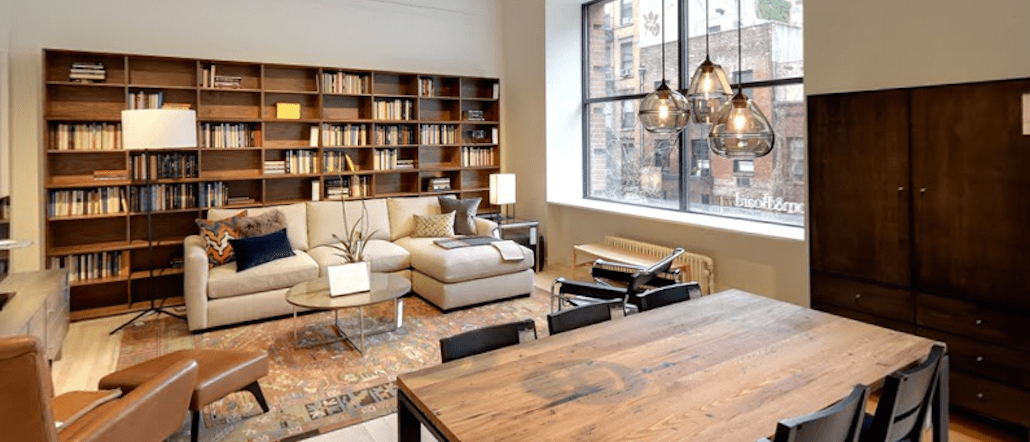Secure your place at the Digiday Publishing Summit in Vail, March 23-25

Retailers are figuring out how to take advantage of all the consumer data they receive online, but it hasn’t been easy. Furniture retailer Room & Board has found a way to reward its returning customers with increasingly intelligent service.
In March, the retailer rolled out an algorithm-based tool that uses past consumer data to make better product recommendations. Room & Board’s predictive intelligence, created with tech from Salesforce, gets smarter as the company gets to know you. Room & Board’s retail business intelligence manager John Schroeder called it a “silent design associate.”
Since deploying the technology in March, Salesforce reports that Room & Board has seen a 2,900 percent ROI, and average order value grew 16 percent.
The furniture chain is based in Minneapolis and has just 15 U.S. stores — considerably fewer than competitor Crate&Barrel, which boasts almost 200 — but a big online presence, and 90 percent of its products are made in America.
The experimentation began when the retailer recognized that customer behavior was changing. After realizing that online and store managers were competing for the same sales, the company made changes, too. “It was a territory war,” said Kimberly Ruthenbeck, Room & Board’s director of Web experience. “The silo of the Web was competing with every store. But we don’t ultimately care where the customer transacted; we just want them to have the best experience.”
Outside of the checkout page, Room & Board’s emails showcase products that complement items already purchased, a useful tool for those without the eye of an interior decorator. In-store, the customized recommendations are accessible at computer kiosks, where customers can fit a side table or couch to size to fit their needs, and receive suggestions for decorating. The consumer is recognized across the board by his or her email address.

Ruthenbeck noted that most product recommendation tools — the ones that power the selection of the “if you like this, then you’ll like this” items on e-commerce checkout pages — are manipulated by companies to promote certain products. Room & Board resisted the urge to product-place and let the algorithm do the work.
The figures aren’t sectored into online and off. In order to settle the “territory war,” as Ruthenbeck called it, Room & Board made every store manager responsible for all sales within 100 miles of their store. This means that the customers who research couch options online, visit their closest store to purchase in person, then pick up accessories from the e-commerce store would be handled by the same manager throughout the process. (According to Forrester research, online furniture sales are increasing as people become more comfortable with e-commerce.)
While sales numbers aren’t what Ruthenbeck pinned as most important for the company — that’s customer experience, naturally — the benefit of connecting the online and offline channels is the ability to close the loop, and continue the conversation. Ruthenbeck said that order-confirmation emails, which have an outstanding opening rate, are stocked with tailored product recommendations.
“We’re staying digitally engaged, no matter the platform,” said Ruthenbeck. “It’s enhanced synergy.”
More in Marketing

Pitch deck: How ChatGPT ads are being sold to Criteo advertisers
OpenAI has the ad inventory. Criteo has relationships with advertisers. Here’s how they’re using them.

Yahoo pauses IAB membership amid a series of quiet cost-saving measures
Yahoo pulls IAB board memberships, following job cuts as PE-owner reportedly reconsiders ad tech investments.

Target looks to e-commerce, advertising investments to help grow the business
Technology is one of the most important areas in which Target will invest with the hopes of returning to profit growth.





